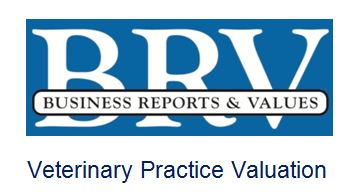
Veterinary Practice Valuations
When it comes to Veterinary Practice Valuations, it is important to understand what is being sold.. The seller of a practice is selling what has already occurred, and the buyer is buying a stream of future benefits (income) discounted to its value today. A valuation is based on real information, investigation and analysis. Using established procedures will ensure that the value finally determined is based on a rational methodology, accurate information, and sound judgment.
To arrive at the future benefits, or income, the principle measure of profit used in the valuation of veterinary practices is the adjusted operating income. The income statement must be adjusted to reflect the true earnings stream of the practice. Adjustments to the income statement exclude expenses that may be better considered a “perk” to the owner(s) and include expenses that may have been omitted. Examples of common adjustments to the income statement follow:
- Rent expense when a veterinary practice and practice real estate are owned by the same individual, the accounting for facility costs is often not at fair market values. The adjusted income statement records a rental cost at a fair market rate.
- Owner’s Professional Compensation.
- Most often the majority of the vehicle expense recorded on the practice income statement is considered discretionary. The adjusted income statement records the vehicle expense at a level consistent with the true needs of the practice.
- The adjusted operating income measures the return to practice owner(s) after all veterinarians in the practice have been compensated for professional and management responsibilities and other expenses are recorded at fair market value.
The adjusted operating income is a measure of true economic return to the owner(s) of practices.
The steps in the process of valuing a veterinary practice are:
- Forecast the future economic stream.
- Assess the risk for a prospective purchaser to establish the proper capitalization/discount rates
- Calculate the present value of the forecasted economic stream. Comprehension of these three basic steps will allow a potential vendor to enhance the practice value and allow a potential purchaser to assess the purchase opportunity.
Preparing a valuation that can be used for a sale or purchase agreement or a Family Law case, requires that the valuer have the correct experience and qualifications.
The principle of Business Reports and Values, Lee Goldstein, has been involved in Business Valuations since 1985. He holds the following qualifications:
Double Major Degree in Accounting and Finance
Diploma in Forensic Accounting
Graduate Diploma in Valuation
Advanced Certificate of Business
Advanced International Certificate in Intellectual Property.
Lee has conducted numerous intellectual property valuations covering a diverse range of industries, and is often called upon to provide expert testimony in judicial matters. Lee has valued businesses and intellectual property worth over $3.2 billion.
Lee Goldstein has been the Triennial Certificate holder and Licensee of a Business Broking Company since 1992.
Ready to find out more?
Call today for a valuation
